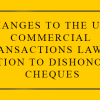Introduction
Duties And Liabilities Of Manager/Director in LLC in UAE – Various legislative sources draw the legal duties and obligations of directors in the United Arab Emirates (UAE). There is no one law specifying the duties and obligations of managers and directors under UAE Law. The regulation of duties of managers and directors and liabilities had been done by the UAE’s government by issuing several laws and steps for its governance. This article outlines and explains the legislation governing their duties and liabilities, types of these duties and liabilities and the breaching of the duties and liabilities. It is pertinent to note that the articles examine and is limited to the extent of laws about limited liability companies (LLC) in the UAE. Legal advice from the lawyers or law firm in UAE should be sought for any specific matter.
The distinction between managers and directors
A unique aspect of the law regulating governance in the UAE is that it does not clearly distinguish between managers and directors. LLC’s in the UAE typically appoint general managers as opposed to directors and on a general basis, there is no requisite board of directors in an LLC, the choice exists regardless. In UAE, the appointments regarding the general managers in LLC are more common as opposed to directors that are usually common for public or private joint-stock companies. The general manager undertakes the functioning of day to day management of the business. They are referred to as directors also. The director or manager has no distinction in Company Law (UAE Federal Law number 02 of 2015). The LLC has the right to choose the board of directors but usually, there is no board of directors with LLC. The majority of laws on liability apply equally to both Managers and Directors because of the absence of differences between the two.
Duties derived from UAE Laws
The duties, liabilities and powers of directors of onshore limited liability companies have derivation from the combination of UAE laws, the corporate documents of the company, any employment or services contracts in place between the individual and the company, resolutions of the shareholders or board and any powers of attorney granted to the individuals. Such duties and liabilities may be of criminal or civil nature. The legislation of UAE is a guideline for avoiding violations while practicing business if managers or directors violate the law or breach any contract they are subjected to penalties under the law. The manager of a company is obligated by the company’s MOA or AOA and by the laws and regulations. If any kind of violation of duties or conducts a breach then personal liability is imposed on him towards the company, partners and third parties which also has been specifically mentioned in Article 51 of the Company Law. Moreover, liability is imposed upon him towards any losses or expenses result by the inadequate utilization of power. Therefore, all managers must comply with the said legislation.
The duties of the directors are derived from the various laws and regulations of the UAE. They are as follows:
- UAE Federal Law No. 2 of 2015 concerning Commercial Companies (“Company Law”).
- Federal Law No. 5 of 1985 on Civil Transactions (“Civil Code”).
- Federal Law No. 3 of 1987 Promulgating the Penal Code (“Penal Code”).
- UAE Federal Law No. 18 of 1993 on Commercial Transactions (“Commercial Transactions Law”).
- Ministerial Resolution No. 518 of 2009 of the Minister of Economy and Chairman of the Board of the Emirates Securities and Commodities Authority (ESCA) regarding corporate discipline standards and governance rules.
Director’s general duties and liabilities under the Company law
The principal legislation for regulation and governance of the duties, liabilities and obligations of directors and managers for LLCs is the UAE Commercial Companies Law (Federal Law No. 2 of 2015, as amended). The UAE Commercial Companies Law categorizes these duties and liabilities into two main groups:
- General duties and liabilities: These apply to all managers and directors and all commercial companies.
- Specific duties and liabilities: There apply to certain managers and directors according to the nature or legal form of the company.
The Duties of the Managing Director of the Company is provided under Article 22 of the Company Law where the standard of care for a person authorized to act as a manager/director of the company is that of a “diligent person” and such person appointed shall act in agreement with the objective of the company and the powers granted to such person by an authorization issued by the company in this respect. He must take care as a prudent person while performing his duties. The personal liability of a director cannot be discharged by the company which secures him of his position as a director. Any kind of agreement contrary to the above principle is considered null and void. The company has no prohibition to obtain directors liability insurance for a director or from to indemnify a director for actions taken in the normal course. Preservation the rights of the companies shall be made by the directors and managers and they shall also act by the care of a prudent person for the interest and welfare of the company and such acts have to be my company’s objectives and for avoiding fraudulent acts. They must circumvent fraudulent acts which may cause the company to incur losses or expenses. They can be held responsible for compensating the company for the losses incurred. The managers and directors of LCC must reimburse losses or expenses incurred to the company due to misuse of the powers provided to them or of their employment contracts or violates provisions of any applicable law, MOA and AOA, or for any mistakes in managing the company (Article 84 and 162 of Company Law). Therefore, the directors and managers shall comply with all legislation and laws, the MOA and AOA, the resolutions issued by the general assembly and their management contracts or employment. It is fundamental to safeguard mandatory and necessary internal approvals by all the directors before any arrangement is entered upon to bind the company in any manner. The manager must not commence the management, trade, or participate in the business of a competing company or a company with objects similar to those of the company for his account or the account of third parties or if he does so then the manager may be liable for paying compensation and dismissed (Article 86 of the Company Law). Declaration of the conflict shall be made by them at any board meeting assembled for discussion of the matter in question, where the director in a conflict shall not be eliminated from voting, the conflicted contract may be annulled on failure or such director may be required to account to the company for any profits made. There are probabilities where a director may not vote on any resolution in which he/she derives direct or indirect interest and is necessary to report to the other directors in writing with complete details of such matter (Article 150 of the Company Law).
Another important general duty is to call for a general assembly meeting within a fiscal year at least once within the ambit of the Companies’ Law. They shall have the responsibility for the preparation of the annual budget, calculation of profits and losses, preparation of an annual report about the company’s activities/affairs and its financial position and make sure that before presenting them to the general assembly they are audited by the company’s auditor along with their recommendations on the distribution of profits for approval. It is their duty that they submit a copy of the same, the company’s books and documents if the request is made by one of the shareholders. They have the duty of registering in the commercial register about the dissolution of the company with competent authority. Such dissolution will not be effective against third parties until the date of its registration and the announcement of the dissolution in two daily local newspapers (at least one of them is issued in Arabic). The Manager or Chairman should notify within 7 days from the date of the dismissal resolution regarding the resolution of the general assembly for dismissal of the auditor and the reasons of such dismissal to the Authority or the concerned authority (subject to each one’s jurisdiction). They have the duty for providing the copies of the company’s books, records, minutes of meetings, documents and papers to the inspectors of the Central Bank, the Ministry, the Authority or any competent authority (subject to each one’s jurisdiction) as they may request from time to time. They shall also provide all the required information and clarification to them.
Liabilities of the directors and managers
There are numerous circumstances where the director is held personally liable under the Company Law in the following cases:
- deception or fraud
- violations of the law or the company’s constitutional documents)
- misuse of power, or
- management errors, which is broadly termed and can be considered to comprise any situation where a director did not meet the standard of care expected of him/her
Any provisions which attempt to alleviate liabilities of the directors in the above-mentioned circumstances are deemed invalid. All managers and directors are held jointly liable if such breach of duties arises from a unanimously adopted resolution. The other manager or director shall oppose such resolution and must not vote for the same.
Civil Liability
In cases where the manager or director breaches any of the duties or obligations, civil liability is imposed prescribed in the followings:
- any legislation, law or regulation;
- the Articles of Association (AOA) or Memorandum of Association (MOA) of a company;
- or if they act outside the authorities granted to them therein;
- its general assembly’s resolutions;
- Power of Attorney
- in their management contracts or employment;
- in any Rules of Management Procedures.
Liability of Board of Directors
The director’s liabilities are mentioned in Article 162 of Company Law and are the most common provision. It postulates that the members of the Board shall be liable towards the company, the shareholders and the third parties for all acts of fraud, misuse of power, and violation of the provisions of this Law or the Articles of Association of the company or an error in management. Every provision to the contrary shall be invalid. It has to be noted that any kind of fault or error can be included under this article to make the directors liable. Unless authorized under Articles of Association, there are certain acts restricted to either Managers/Directors:
- To enter into loans for periods over three years
- To mortgage the company’s properties
- To pledge or property of the company
- To discharge debtors of the company from their obligations
- To compromise or agree to arbitration
- Failure to comply will result in liability for those found in default of the law.
Other Duties and Liabilities
It should be understood that the duties of the directors are towards the company as a whole, rather than towards the individual shareholders which denote to act in the best interests or welfare of all shareholders. Moreover, the directors should be cautious that if the company’s solvency is indecisive or becomes insolvent, in such cases the directors should consider the interests of creditors, third parties, and potentially employees above those of shareholders.
- The Directors are prohibited from utilizing or disclosing company secrets or any attempt to damage the company business. The director has to maintain confidentiality in these matters. If the director fails to do so, he/she may be imprisoned for a period of up to six months and/or penalized with a fine of no less than AED 50,000.
- The director shall be liable to not only the company and/ or the shareholders but also the third parties for committing fraudulent actions.
- The responsibility to resign their directorship is imposed by the Civil Code only at times which would not cause damage to the company.
- The managers are required to timely notify the shareholders when the losses of the LLC reach half the share capital, who may consider liquidation of the company. If in case the losses of the LLC reach three-quarters of the capital, the partners holding one-quarter of the capital may demand the dissolution of the company.
- In the event of insolvency and where LLC is unable to meet its financial obligations the director may be liable to both civil and criminal liability in such events.
- The directors of LLC must file for bankruptcy within 30 days of the date of suspension of payments of debts according to the Commercial Transactions Law when the company is unable to pay its debts. If the director fails to take such action then they are personally liable in any bankruptcy approach.
- Therefore, directors must give full consideration and vigilance to their decisions during financial difficulties. They must also consider how such actions may affect creditors and stakeholders and how they may be explicated in a court in light of the Bankruptcy Law or by a liquidator.
- Directors’ and officers’ insurance policies are available in the UAE for protecting the company’s directors and officers from personal liability and expenses in the event of claims for failure to fulfil their duties or actions as a role of director or officer. They will have to pay clear attention to the limitations of protection provided by these kinds of policies. In many cases, intentional breaches or other criminal conducts will not be covered and of course an insurance policy.
Director’s liability under other UAE legislations
Civil Code
Additionally, the Civil Code refers to “limits of custom” and provides that directors can be held liable under the Civil Code for actions that the court may deem as exceeding the “limits of custom” even if the MOA of an LLC does not specify any restrictions imposed on the capacity of a director’s actions and powers. There is no particular or formal definition explaining the “limits of custom” under the Civil Code. This term is interpreted by the relevant court depending upon circumstances of cases.
Penal Code
The criminal liability of directors or managers in the UAE is not present in any specific comprehensive law but most criminal offences are based on a director or manager’s power to represent the corporate body they are acting for. The criminal liability of directors and managers is provided under the Penal Code.
Under the Penal Code, directors can be found criminally liable for any actions. It includes:
- Breaching professional duties;
- Fraud or embezzlement of property or a legal right;
- Breaching their obligations about companies responsibility;
- Unauthorized disclosure of confidential information or using such information for a personal benefit;
- Health and safety failures resulting in the serious incident which leads to injury or death;
- The cheque is drawn in “bad faith” and there are insufficient funds to honour the cheque, writing a cheque on behalf of the company which is not honoured, drawing a cheque when there were sufficient funds, but the withdrawal of funds was done before presenting the cheque and related matters.
Penalties and Criminal Liability
The penalties as per the UAE Commercial Companies include the following:
- If the Chairman of a joint-stock company fails to invite the annual general assembly of the company which is to be convened within 4 months at the end of its fiscal year, a fine of between AED 50,000 and AED 100,000 may be imposed. On the other hand, if he fails to convene the general assembly meeting upon request to this effect from the ministry of the authority then he may be liable for a fine of not less than AED 100,000 and not more than AED 300,000;
- If the losses of the company have reached up to 50% of the company’s share capital and the chairman of a joint-stock company or the manager of a limited liability company has failed to invite the general assembly to convene, they are liable for a fine of between AED 50,000 and AED 1,000,000;
- If the Chairman, Manager, or Director of the company fails to provide any documents or information to the auditors of the company or to the Ministry’s or the Authority’s inspectors to enable them to perform their duties, if he conceals information or explanations or provides misleading information then they are liable for a fine between AED 10,000 and AED 100,000;
- If any profits or interests of the company have been distributed by any manager or director to the shareholders or any other in contravention of the provisions of the Companies’ Law or Company’s MOA or the AOA, they may be subjected to imprisonment for not less than 6 months and not more than 3 years and/or a fine between AED 50,000 and AED 500,000. Such manager or director if deliberately provides false statements in a balance sheet, in a profit and loss account or a financial report, or omits material incidents in such documents to conceal the true financial position of the company, they will be entitled to a fine of between ED 100,000 and AED 500,000;
- If a manager or a director utilizes or discloses any of the company’s confidential information or deliberately tries to cause damage to its activities then the person concerned may be subject to imprisonment for up to 6 months and/or a fine of between AED 50,000 and not more than 500,000; and
- If a chairman or a director participates, directly or indirectly, with any entity to influence the prices of securities issued by the company then he may be subject to imprisonment for up to 6 months and/or a fine of at least AED 1,000,000 and not more than AED 10,000,000.
In addition to all these penalties, the managers and directors are also subjected to the penalties stipulated in the Bankruptcy Law. There are also penalties for the violations or breaches by their managers or directors of the provision of the Commercial Companies Law or the MOA and/or AOA. The Managers and Directors may also be subject to the criminal penalties stipulated in the Penal Code, such as those relating to bankruptcy with negligence, bankruptcy with fraud, breach of trust, fraud, and forgery. Any exemptions or waivers granted (in the MOA, AOA or any other contract) to the Managers or Directors from the personal duties, obligations or liabilities imposed on them under any applicable legislation will be void.
If a Manager or a director breaches his duties or violates any legislation or any provisions of the Company’s MOA or AOA, he may be personally liable for such breach and any acts involving fraud, deception, or gross misconduct towards the company, the partners, or shareholders and any third parties. In cases such as wrongful acts, the company may be held responsible for the acts and dispositions of its manager, by the general principles governing responsibility for harmful acts, but this will only arise if the Manager’s acts are accompanied by a statement of the capacity in which he is operating and within the limits of his authorities. However, if these dispositions are not required by the objects of the company if they exceed the limits of his authorities and powers, and then the company will not be responsible for such dispositions towards third parties.
- Tags:
- UAE Law






